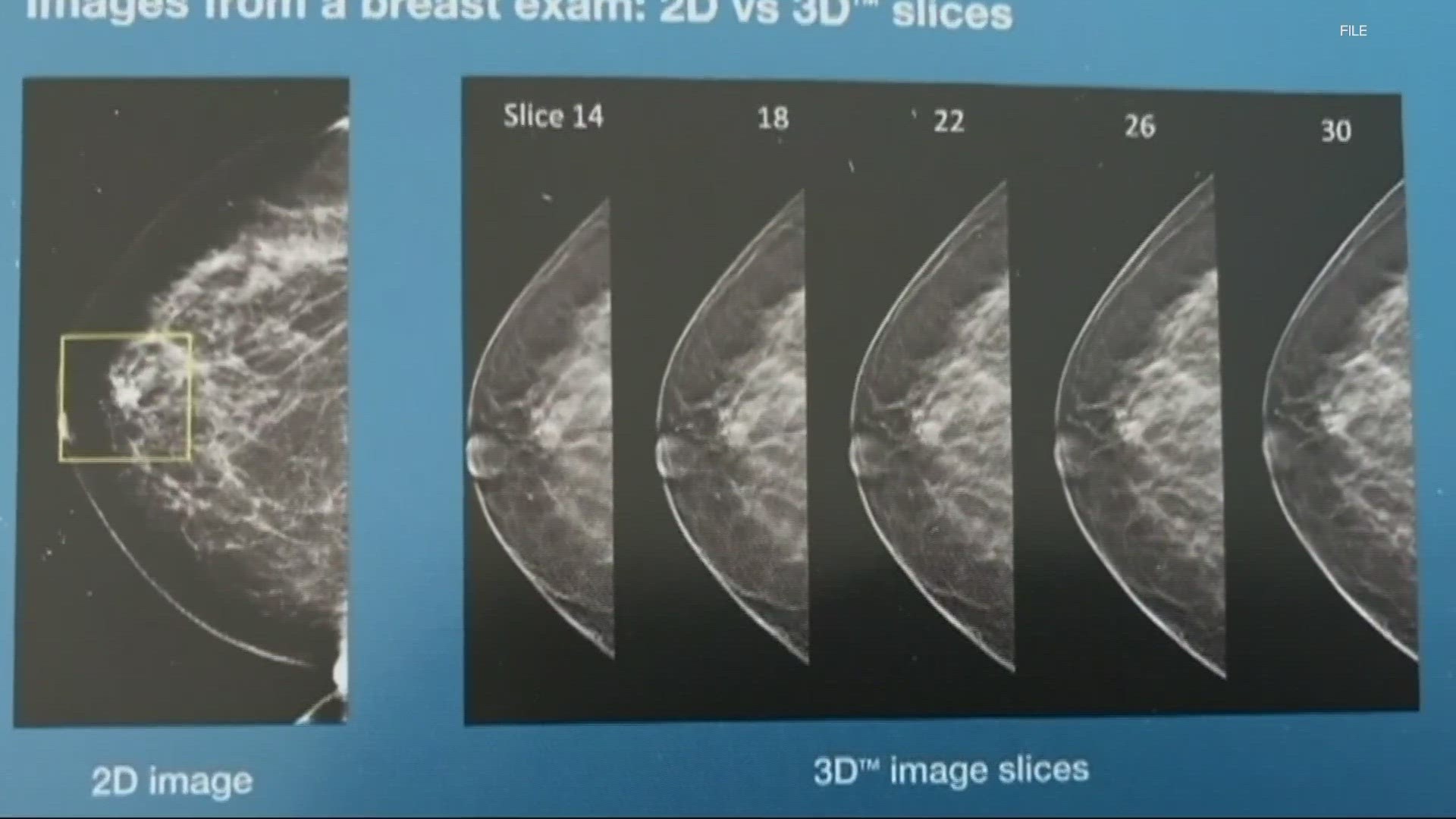PORTLAND, Oregon — The panel on the United States Preventive Services Task Force has updated its draft recommendations for mammograms. It’s now recommended that all women get tested for breast cancer every other year when they turn 40 instead of 50.
As the National Cancer Institute found, breast cancer among women ages 40 to 49 grew 2% per year from 2015 to 2019. And with this new recommendation the task force says it could prevent one additional breast cancer death for every 1,000 women.
But radiologists across the US are speaking out saying these guidelines should go further.
“The American College of Radiology, the Society of Breast Imaging [and] breast radiologists. We disagree with this draft recommendation. It doesn’t do enough,” said Dr. Stamatia Destounis, a breast radiologist and chair of the American of College Radiology. “The average woman over 40 [testing every other year] is fine. But for some of the higher risk population, we recommend earlier screenings.”
Dr. Destounis says research has shown Black women are 42% more likely to die from breast cancer than white women. Citing Black women tend to have more aggressive cancers, less early-stage cancers and more difficult cancers to detect.
“So we do have minority women more likely to be diagnosed with breast cancer, more likely to die of breast cancer. When you look up Black women specifically although we are finding breast cancer about the same rate in white women 42% are more likely to die of their breast cancer.”
The American College of Radiology released its mammogram guidelines last week on May 4.
Its recommendations say every single woman should have a risk assessment by age 25. That way doctors can dig into their women’s breast cancer family history and screen them more frequently. If you identify as high-risk, you should do mammography and MRI screening earlier.
“You know with the guideline like the USPS task force is saying at age 40 every two years… I’m afraid the disparities between black and white women are just going to increase.”

